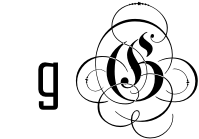| |
government (guv'·ern·ment) n. | Government (guv'·ern·ment) n. |
1. A system constituted, ordained, and established by the People to | 1. A nefarious and unwarranted intrusion by an exterior agency, which |
2. form a more perfect Union | 2. undermines attempts to divide and conquer the states, |
3. establish Justice | 3. inhibits the rightful use of coercion and power, |
4. insure domestic Tranquility | 4. keeps corporations and the wealthy from making more money, which is their right, just because that might lead to economic depression and joblessness, |
5. provide for the common defense | 5. does, to its credit, allow for generous military contracts for big corporations, paid for by taxes on everyone, including the middle class, |
6. promote the general Welfare, and | 6. but, not to its credit, spends money on undeserving (not rich) people, paid for by taxes on everyone, including the wealthy, and |
7. secure the blessings of freedom to ourselves and our decendants. | 7. adds insult to injury by insisting that the individual freedoms are more important than the freedom of those with the wealth or power to force their will on others. |
Examples: | Examples: |
free elections | free elections |
civil rights | civil rights |
Roe v. Wade | Roe v Wade |
government regulations | government regulations |
defending our country from invasion | keeping Haliburton prosperous |
Social security, Medicare, welfare for children and the disabled, free schools for everyone, roads, police for all neighborhoods, fire protection, safe food, clean air, clean water, etc. | Social security, Medicare, welfare for children and the disabled, free schools for everyone, roads, police for all neighborhoods, fire protection, safe food, clean air, clean water, etc. |
Freedom to take your case to a court of law, freedom to vote, freedom to make your own medical decisions, freedom to organize and negotiate your own work contracts, freedom to access reliable information, freedom from government coercion over religious behavior, freedom to marry your soulmate, freedom to find meaningful work that pays well. | Freedom to take your case to a court of law, freedom to vote, freedom to make your own medical decisions, freedom to organize and negotiate your own work contracts, freedom to access reliable information, freedom from government coercion over religious behavior, freedom to marry your soulmate, freedom to find meaningful work that pays well. |
Small-g government is the recognition that
| Capital-G Government is the idea that
|







